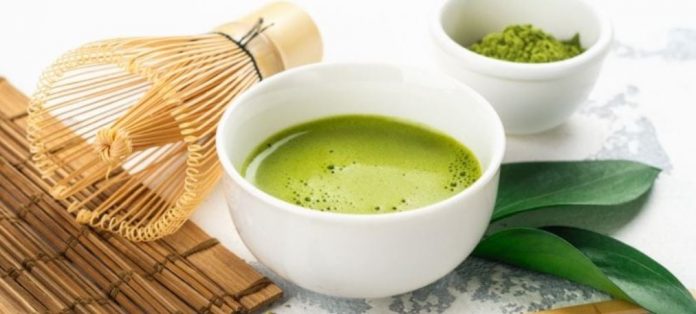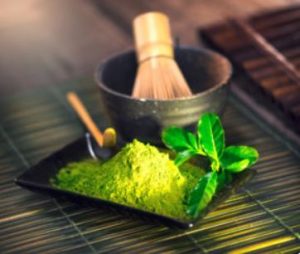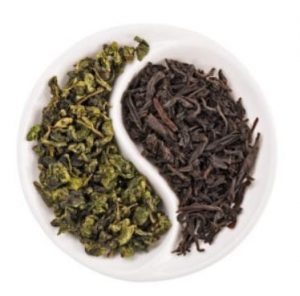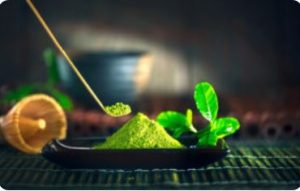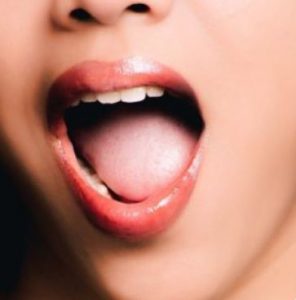With all the new ways companies can market their goods, it can be hard to determine what is a passing fad, and what is actually worth your attention. This cannot be more true in reference to the many drinks seen carried by people starting off their day, looking for a pick me up in the afternoon, or simply needing to carry around something to sip on. Whether it be coffee, tea, soda, or even water, matcha powder has become a favorite addition in many beverage choices.
But what is matcha exactly? And why might you want to consider it as part of a regular drink favorite? This article explores the roots of this powdered tea, how it is used, and the many benefits it surprisingly has for your overall well-being. Read on for enlightenment.
What is Matcha?
Matcha is a powdered leaf of green tea that has been shaded during ripening to make them sweeter and brighter in both color and flavor. After the harvest they are steamed and dried before being ground into match powder. The powdered form of the leaf is considered more potent than just seeping the leaves into a tea, therefore it is used more as a concentrated addition to many other drinks, and even food.
Because of this there are varying grades of matcha powder: those that are considered a higher quality for ceremonial drinking, as tea ceremonies are highly esteemed in the east and tea quality is an important part of this cultural tradition. Other various labels are used for everyday drinking, mixing with other ingredients, and for baking into different dishes.
They all look somewhat similar with only the most practiced tea connoisseur able to tell the difference in the raw powder- which is a soft green. If you are concerned with quality in your own uses, be sure to purchase from sellers who know these differences. You can also take time to educate yourself by learning from helpful resources like Tea Minded.
How Green Tea Differs from Black Tea
Green tea has long been a highly regarded tea that differs from other teas in that after harvest it is not allowed to oxidize. Green teas come from the same plants as the widely popular black teas, but is simply prepared differently to leave behind the ‘greener’, fresher, sweeter flavor notes rather than the malty, fruity, and more bitter tones of black. Both are considered smooth tasting and flavorful, and their use is entirely up to personal taste.
A Brief History of Matcha
Green tea cultivation is believed to have begun in China as early as the 7th Century, with variations in tea leaf preparation evolving through the years until a powdered tea beverage whipped with hot water became popular in the 12th Century. This form of pulverized and prepared tea powder became known as matcha, and is still widely becoming popular throughout the world as an excellent way to enjoy green tea.
How is Matcha Used?
As mentioned, matcha is used in both beverages and in cooking. It is slightly sweet, fresh, and provides a light taste to the palate. It also is slightly caffeinated, but since the powder is in a concentrated form and in ingested whole rather than seeped, caffeine levels may vary – so those sensitive to caffeine should start with small amounts to gauge their reactions.
Matcha is traditionally whisked into hot water as a tea, but it can be blended into just about any beverage you wish to incorporate it into, either hot or cold. It lends a nice pairing to many fruits, as well as more savory flavors, such as chocolate, mint, vanilla, almond, and even pumpkin.
In the kitchen it lends a very creative approach to a wide variety of different recipes. Muffins, oatmeals, puddings, pancakes, sauces, hummus, and pastas have all been experimented with amazing results.
Matcha Green Tea Benefits
Green tea is packed with antioxidants which have long been known to have many positive effects on the body. It also is rich in fiber, Vitamin C, and various nutrients to support body function. These ingredients are found in green tea in general, as well as other teas and coffees, although not in the same concentration. Matcha in particular is a bit more concentrated overall which is why is is popularly used to aide as a healthy option for those suffering from various ailments
May Support a Decrease in Tumor Growth
The high amounts of polyphenols, an antioxidant found in teas, has long been known to help shrink tumors in laboratory studies. As an antioxidant it also has shown favorable responses in protection against radiation damage by ultraviolet UVB. Cancer rates in countries that have high incidences of green tea drinkers tend to be very low overall as well, suggesting there is a correlation which is what has prompted many ongoing studies.
Supports a Healthy Heart, Reduces Risk of Stroke
Catechins are another antioxidant in high levels found in green tea that help prevent cell damage. They are known to help lower blood pressure and bad cholesterol levels – both of which can lead to heart disease, heart attacks, and increases the chance of stroke. Studies have shown that those who regularly drink green tea lower their risk of cardiovascular related issues exponentially.
May Support Weight Loss Programs
Matcha contains EGCg (epigallocatechin gallate), a Catechin that increases the hormone responsible for making you feel full. When used with a healthy diet and exercise it has proven to support weight loss by curbing cravings when study participants ingested the powder when they began to feel hungry.
Enhance Cognitive Brain Function
Tea has long been believed to bring the mind to focus and help settle memory due to the traces of caffeine it has, but the large amounts of antioxidants found are incredibly supportive of brain function. So much so that studies of its use with neuropsychiatric disorders, such as dementia have been taken. There is also favorable results with alzheimer risk factors.
Support a Healthy Mouth
The antioxidants in the tea work against the bacteria in your mouth and prevent plaque build-up. It is even considered more effective than gum and mints for killing bad breath, and works for an overall healthier mouth.
Reduces Body Inflammation
All these powerful antioxidants has shown promise in reducing body inflammation, such as arthritis and other joint conditions. Used more as a way to help control pain, studies show it may help slow the breakdown of cartilage as well.
Side Effects of Matcha Green Tea
As with anything consumable, possible side effects may occur that you need to be aware of. Although matcha is considered safe overall with very few concerns, it does contain caffeine and could react with certain prescription drugs.
Caffeine levels are considered low, but it is entirely dependent on the amount of matcha you use based on your own personal tastes. There are approximately 20-45 mg of caffeine per 8 ounces of a steeped green tea which is comparable to matcha. But if you are sensitive to caffeine, you could experience anxiety, irritability, insomnia, or even an upset stomach.
People on blood thinners should avoid many teas due to the high levels of Vitamin K as well as their ability to reduce clotting effects. Adverse effects can also occur if you take any type of stimulant drug as you could increase blood pressure and heart rate.
Conclusion
If you thought matcha was just a trend, then guess again. This green tea powder has been around for close to 1000 years with people benefiting from the unique taste and benefits for just as long. Its newfound popularity may seem like a passing fad, but for those who know its history and uses are most likely excited that they can get it in just about any tea or coffee house they visit.
We’d love to hear what you love about matcha and how you use it. If you have any favorite recipes, let us know below! And, as always, please share!
Original article found here.
This article is intended for informational purposes only. If you have any questions or are considering any recommendations, please consult your health practitioner.















